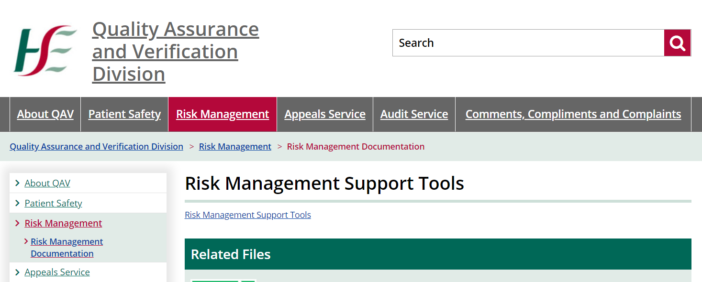Risk Management
 What is risk management? Read the OECD Recommendation of the Council on Public Integrity and the OECD Public Integrity Handbook's chapter on risk management to learn more.
What is risk management? Read the OECD Recommendation of the Council on Public Integrity and the OECD Public Integrity Handbook's chapter on risk management to learn more.
Tools

Corruption Prevention / Risk Analysis Rhineland-Palatinate
The integrity of the public administration is of central importance for a state governed by the rule of law. Corruption can cause great damage and seriously affects the reputation of the state. The state government of Rhineland-Palatinate is therefore actively trying to prevent corruption in the administration. Rhineland-Palatinate takes full action against corruption, to ward off damage to the state and to protect its reputable contractual partners.
The main elements of the program for the prevention of corruption are set out in an administrative regulation issued by the state government on January 22, 2019. The website provides the administrative regulation with its annexes, guidelines and Q6A.
The guideline for risk management corruption was introduced with the 2019 administrative regulation. A flowchart for risk analysis corruption can be found via the website as well as excel sheets and templates to conduct the necessary risk analysis (Attachment 1 to Annex 1)
Die Integrität der öffentlichen Verwaltung ist für einen Rechtsstaat von zentraler Bedeutung. Korruption kann großen Schaden anrichten und beeinträchtigt das Ansehen des Staates erheblich. Die rheinland-pfälzische Landesregierung versucht daher aktiv, Korruption in der Verwaltung zu verhindern. Rheinland-Pfalz geht konsequent gegen Korruption vor, um Schaden vom Land abzuwenden und seine seriösen Vertragspartner zu schützen.
Die wesentlichen Elemente des Programms zur Korruptionsprävention sind in einer Verwaltungsvorschrift der Landesregierung vom 22. Januar 2019 festgelegt. Auf der Website finden Sie die Verwaltungsvorschrift mit ihren Anhängen, Richtlinien und Q6A.
Der Leitfaden zum Risikomanagement Korruption wurde mit der Verwaltungsvorschrift 2019 eingeführt. Über die Website finden Sie ein Flussdiagramm zur risikoanalyse sowie Excel-Tabellen und Vorlagen zur Durchführung der notwendigen Risikoanalyse (Anlage 1 zu Anhang 1)

Health Service Executive’s risk registers
This page provides risk management support tools, such as templates for risk management and risk assessment, risk registers, risk assessment training materials, tools and exercises.

Interactive Guide for Risk Management. Application to manage risk for integrity in Public Procurement process
Carrying out a risk management process for integrity is a complex task for public institutions. For this reason, the Anti-Fraud Office of Catalonia (Spain) makes risk management tools available to public managers to facilitate the process. The essential and complete risk management tools we share in the OECD Integrity Toolkit, aims at guiding them in this preventive task.
The Guide has two main tools:
- A roadmap to apply the methodology of risk assessment of the main risk areas in public management: procurement, human resources management, subsudies, urban planning, and budget management,
- The main output of four years of risk analysis in public procurement processes. The diagnosis establishes 12 main risk areas in the three phases of procurement process: preparation, awarding and execution. Main factors are considered human, organizational, operational, procedural, external -laws and regulation-).
Other useful methods and tools are in the link https://www.antifrau.cat/en/tools.html

Public Procurement Guide – Managing Corruption Risk in the Public Procurement Cycle
Integrity in public procurement is crucial to ensure that public money is spent efficiently and effectively, where it is most needed. As a strategic area of governance, with overarching impact on the whole of society, public procurement needs to be equipped with robust anti-corruption safeguards, tailored to its specific risks. To this end, the French Anti-Corruption Agency (AFA) and the Department for Public Procurement (DAE) published a guide on how to manage corruption risks in the public procurement cycle. Combining the inputs of both ethics and procurement practitioners, this guide aims to help public sector entities to design, develop, and implement effective corruption prevention systems, while raising integrity standards and promoting professionalism in public procurement.
Submit a digital tool here
Something wrong? Report it here
The OECD Public Integrity Toolkit is a non-exhaustive list of integrity-related practices and tools, designed purely for informative purposes. Using the platform does not involve the provision of personal data, and your searches are kept anonymous. The inclusion of a tool on this list under no circumstances represents an endorsement by the OECD, and none of the included tools are affiliated with the OECD. The OECD cannot be held responsible for changes, errors or omissions on the listed websites.